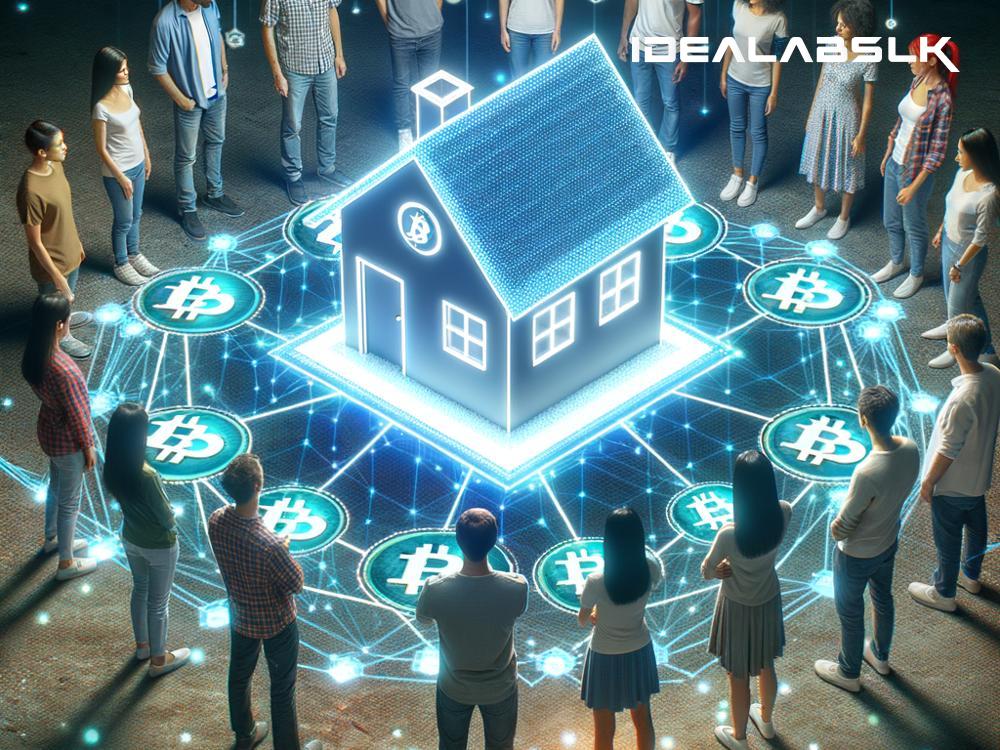How Blockchain Can Break Down Barriers in Real Estate Investing
Real estate has always been a popular choice for investors looking for a stable and profitable venture. However, it's no secret that investing in property comes with its share of hurdles, especially for the average person. The process is often complex, requiring substantial initial capital, navigating through legal paperwork, and dealing with sometimes inefficient or opaque systems. But what if there was a smoother, more accessible way to invest in real estate? That's where blockchain technology comes into play.
Understanding Blockchain in Simple Terms
Before diving into the specifics, let's briefly touch on what blockchain is. Imagine it as a digital ledger or record book that's shared among a network of computers. No single entity controls this ledger; rather, it's a collective, decentralized system. Each "block" in the chain contains a number of transactions, and whenever a new transaction occurs, it's added to every participant's ledger. This system is incredibly secure and transparent because altering any part of the chain would require changing every block on every computer in the network simultaneously, which is practically impossible.
Lowering the Entry Barriers
One of the most significant ways blockchain is revolutionizing the real estate market is by democratizing access to investments. Traditionally, buying property requires a hefty sum upfront, but blockchain introduces the concept of "tokenization." Tokenization means dividing property into shares or tokens that can be sold to investors. This method opens the door for people with smaller savings to get a piece of the investment pie. Instead of needing hundreds of thousands or even millions to invest in real estate, individuals can now get started with much smaller amounts.
Simplifying Transactions
Real estate transactions are famous for their complexity, slowness, and the need for a slew of intermediaries like agents, lawyers, and banks. Each of these steps adds time and cost to the process. Blockchain technology offers a streamlined alternative. By using smart contracts (self-executing contracts where the terms are directly written into code), many of the traditional steps can be automated and made more efficient. These smart contracts execute transactions automatically when conditions are met, reducing the need for intermediaries and slashing both the time and the expense involved.
Enhancing Transparency and Security
The transparency of the blockchain is another game-changer. Every transaction is recorded in a way that's accessible to anyone in the network, making the history of a property easy to trace and verify. This level of openness can significantly reduce fraud and disputes, providing a clearer picture of the property's history, ownership, and value.
Moreover, the security features of blockchain help protect against tampering, hacking, and fraud. Since altering one block would require altering all subsequent blocks on every copy of the ledger simultaneously, the integrity of real estate transactions can be maintained more effectively than ever before.
Benefiting from Increased Liquidity
Real estate is typically considered a "illiquid" asset, meaning it can take a long time to sell and convert into cash. However, by tokenizing real estate assets and allowing them to be bought and sold like stocks, blockchain can significantly increase their liquidity. This liquidity makes it easier for investors to enter or exit investments according to their needs and market conditions, making real estate a more flexible and attractive option.
Looking Ahead
While the potential of blockchain in transforming the real estate investment landscape is immense, it's still a technology in its growth phase. Regulatory, technical, and adoption challenges remain. However, as these hurdles are gradually overcome, we can expect blockchain to become a key player in making real estate investments more accessible, efficient, and secure than ever before.
In conclusion, blockchain technology is poised to break down the traditional barriers of real estate investing, making it easier, more transparent, and more accessible for people worldwide. By reducing entry barriers, simplifying transactions, enhancing security, and providing liquidity, blockchain opens up new opportunities for both seasoned investors and those new to the game. As we move forward, keeping an eye on how blockchain continues to evolve in this space could be incredibly beneficial for anyone looking to diversify their investment portfolio into real estate.

